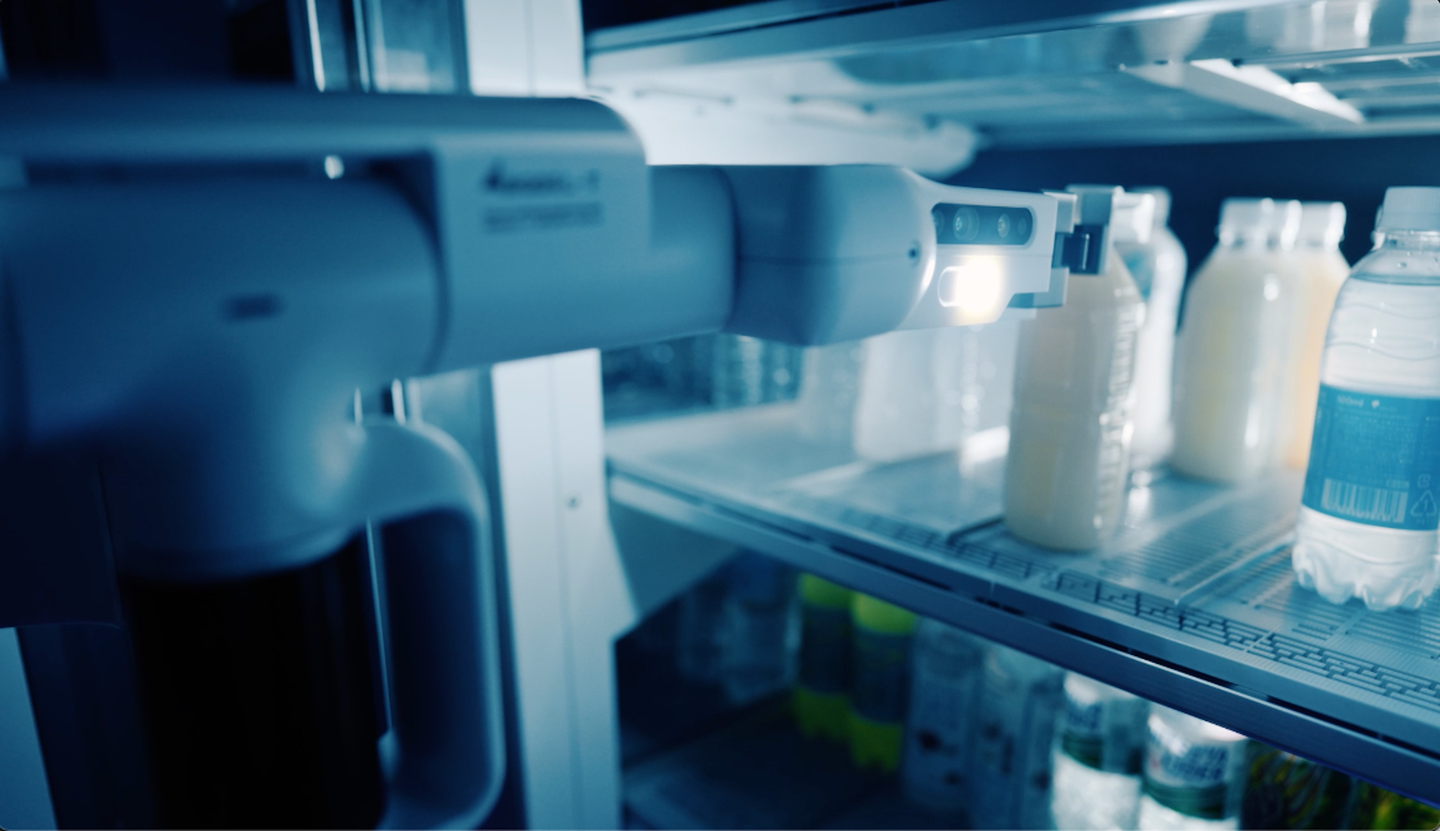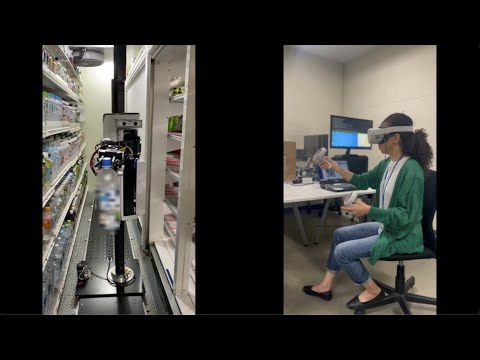300 Japanese stores will be reshelved by robot arms next month
Telexistence's TX-SCARA is designed to fill Japan's labor shortage, but its implications are much larger than that.

The Tokyo-based robotics company, Telexistence Inc., announced a new partnership with the Japanese convenience store chain, FamilyMart, earlier today. The new partnership will see new workers arriving in 300 major metropolitan locations later this month—a fleet of robotic arms tasked solely with reshelving the minimarts’ refrigerated products.
The TX-SCARA (short for “Selective Compliance Assembly Robot Arm”) is an autonomous restock bot capable of moving items from storage to fridge shelves, and was reportedly designed to help address the country’s ongoing labor shortage issues. “The decline in Japan’s labor population is one of the key management issues for FamilyMart to continue stable store operations,” said Tomohiro Kano, FamilyMart’s general manager, “The newly created time can be reallocated to customer service and shop floor enhancement.”
Should things go awry behind-the-scenes, the TX-SCARA will also be able to fallback on human employees who remotely control the arms until the issue is addressed, although Telexistence vows the robots can operate autonomously up to 98-percent of the time. The company’s newest product was designed in partnership with both Microsoft and Nvidia—the former providing access to its Azure cloud infrastructure for sales data and restock referencing, while the latter supplies TX-SCARA’s brain via its Jetson AI platform.
[Related: This robot chef can taste salt with its arm.]
Just 300 installations is a small portion of the reportedly 16,000 FamilyMart locations across Japan, but Telexistence (and by extension Microsoft and Nvidia) has much larger designs for the TX-SCARA—an imminent expansion into US markets.

The TX-SCARA might be convenient for businesses like FamilyMart, but there are far larger implications for these kinds of innovations. Telexperience can claim (on solid grounds) that their product will help alleviate Japan’s labor shortage, but the bigger issue at stake here is increasingly autonomous workforces. Studies show that there is a direct correlation between automation and income inequality, and unless safeguards are put in place to protect human workers’ rights, wages, and job security, this gap will continue to grow. This isn’t to say robots like TX-SCARA can’t help take over many of the most routine and tedious job responsibilities, but it’s important to remember the human equation in all of these situations.
Unfortunately, regardless of the issues at hand, TX-SCARA still can’t compete with MIT’s robot fireflies when it comes to cuteness.
